SEO Article Writer
Discover professional SEO article writing tailored to your needs.

ChatArt is a brand of iMyFone that has been established for 9 years and has a long history of providing us with productivity applications and helping users solve various system problems. You can trust us with great confidence.
An SEO article writer is someone who creates content designed to rank well on search engines like Google. Their main goal is to help websites show up higher in search results, attract more visitors, and achieve the site's goals—whether that's selling products, building a brand, or sharing useful information.
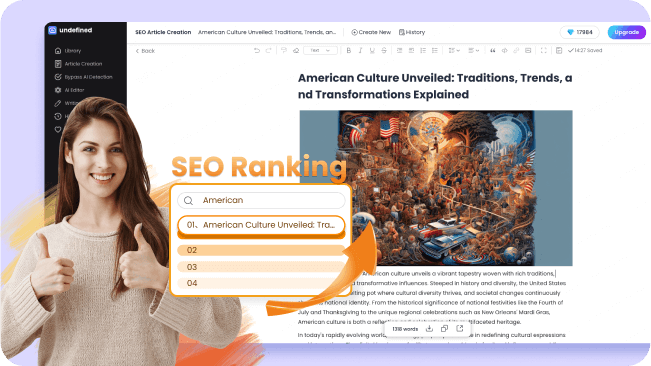
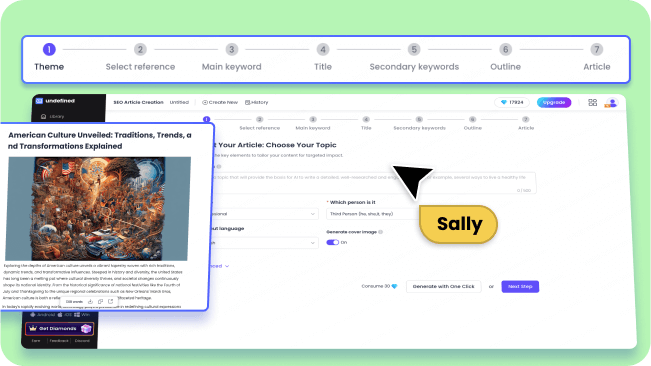
Writing an SEO-friendly article can be simple if you follow a few key steps. Start by researching relevant keywords that match your topic and audience's search intent. Structure your content with clear headings and subheadings, using the primary keyword naturally throughout the article. Make sure to include engaging, high-quality content that provides real value to your readers.
Keyword research and integration are key to creating content that ranks well on search engines. It starts with figuring out the words and phrases your audience is likely to type into search bars when looking for information, products, or services related to your topic. Once you’ve found the right keywords, you’ll want to work them naturally into your content, including the title, headings, subheadings, and main text.
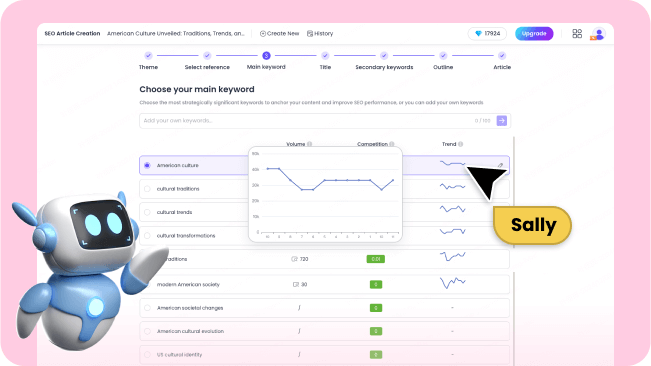
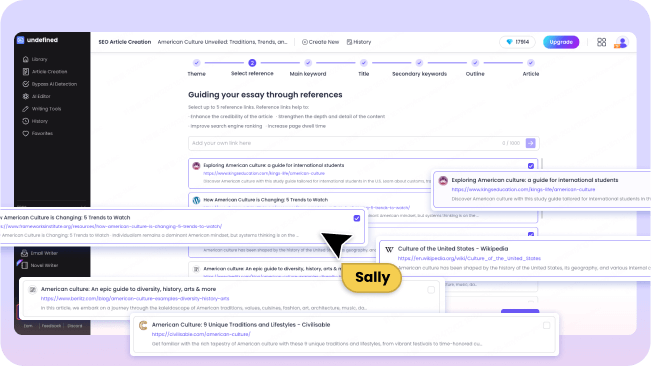
Keeping up with SEO trends is super important if you want to stay at the top of search results and keep bringing in steady organic traffic. Search engines like Google are always changing their algorithms, so what worked before might not work anymore. To stay ahead, SEO pros and content creators need to follow industry updates, join webinars, and learn from trusted sources about the newest changes and tips.
With the help of SEO Article tools or outline generators, you can quickly create a framework that includes key elements like the introduction, main headings, subheadings, and a conclusion.

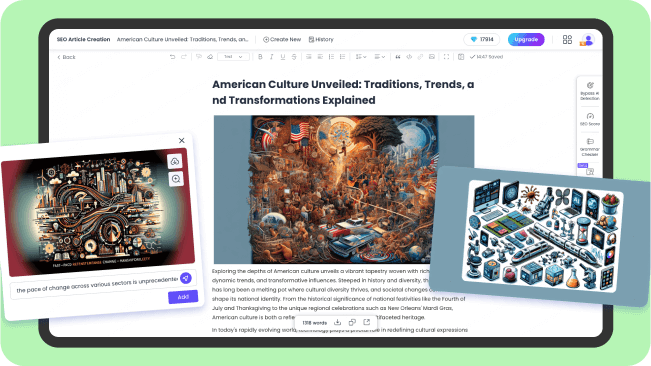
By default, a cover image for your article is automatically created, so you don’t have to worry about adding a visual element yourself. This feature ensures your article has an attractive image that grabs readers’ attention and boosts engagement.
A higher score means your content is well-optimized, while a lower score shows areas that need work. By checking your article's SEO score regularly, you can make changes to make sure your content is as search-engine-friendly as possible, which can help it get more organic traffic.
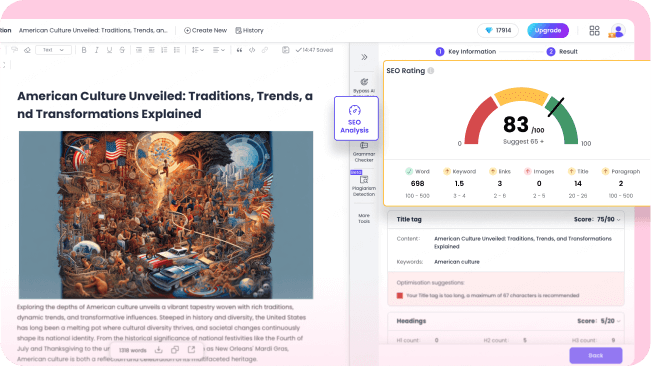
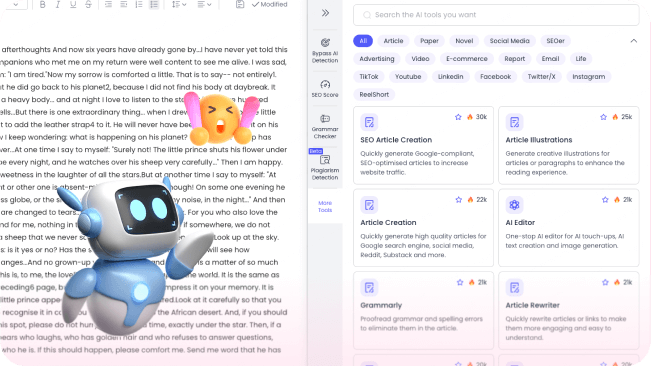
A higher score means your content is well-optimized, while a lower score shows areas that need work. By checking your article's SEO score regularly, you can make changes to make sure your content is as search-engine-friendly as possible, which can help it get more organic traffic.
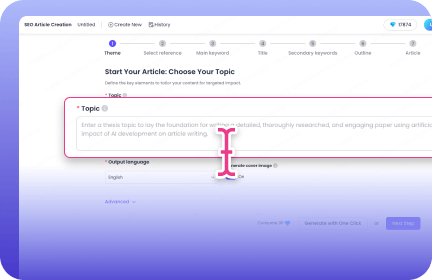
Define the key elements to tailor your content for targeted impact.

Select up to 5 reference links. Reference links help to: Strengthen the depth and detail of the content.

Choose the most strategically significant keywords to anchor your content and improve SEO performance, or you can add your own keywords.
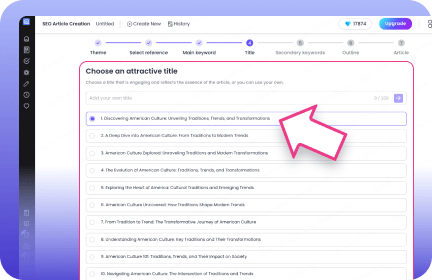
Choose a title that is engaging and reflects the essence of the article, or you can use your own.
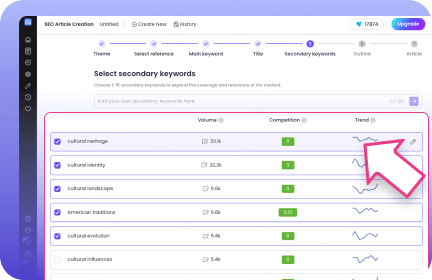
Choose 1-15 secondary keywords to expand the coverage and relevance of the content.
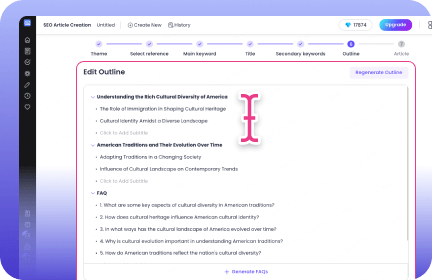
Choose 1-15 secondary keywords to expand the coverage and relevance of the content.
Long-tail keywords are longer, more specific search phrases. They typically have lower competition and higher conversion rates because they target users with specific intent.
While not strictly necessary, SEO tools can make the writing process easier by helping you identify keywords, optimize your content, and analyze your article’s performance.
To make your article engaging, focus on writing clear, interesting content that answers the reader’s questions, while still using keywords naturally and structuring the article for SEO.
SEO is crucial because it helps your articles appear higher in search engine results, making it easier for users to find and engage with your content.
SEO-friendly articles use well-researched keywords, have a clear structure, are easy to read, and include proper use of meta tags, headers, and internal links.